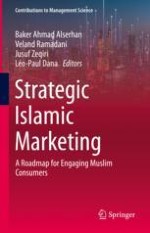Marketing in the emerging Islamic markets is a challenging business function since international companies must contend with unfamiliar customs, cultural differences, and legal challenges. This book provides marketers who want to reach this emerging and very lucrative consumer base with essential, research-based insights on these aspects and how to deal with them.
This book redefines marketing practice and conduct and challenges conventional marketing wisdom by introducing a religious-based ethical framework to the practice of marketing. The framework opens a whole new array of marketing opportunities and describes the behavior of the consumer, community, and companies using a different approach than conventional marketing thought.
